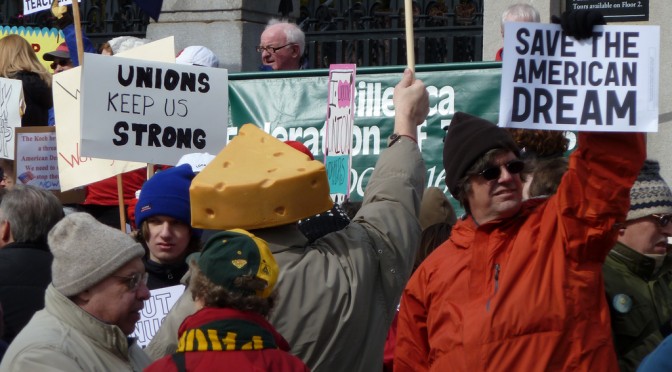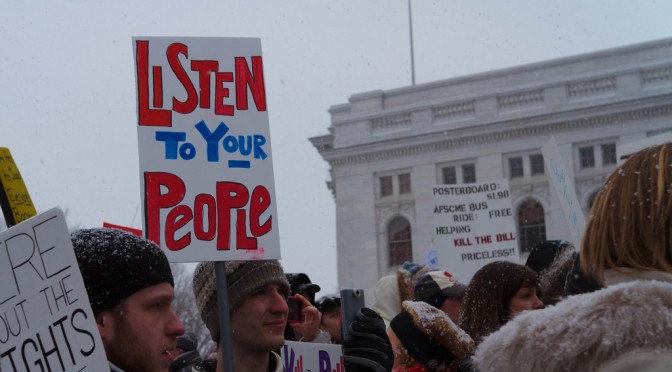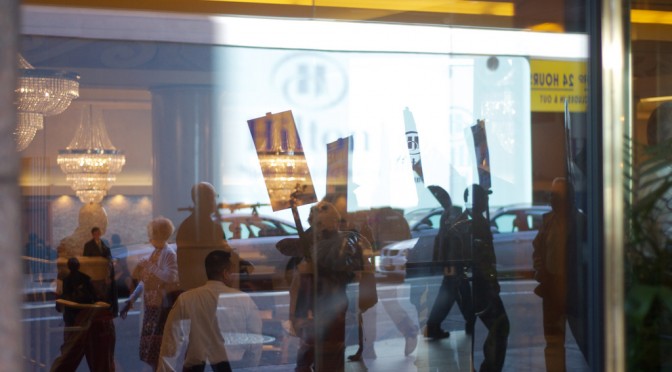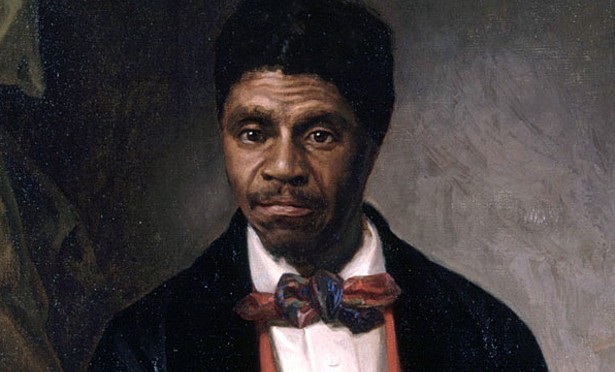By Penny Lewis is an Assistant Professor of Labor Studies at the Murphy Institute.
It’s been a bad week for workers and unions at the US Supreme Court (not to mention women and families in general). Last week, in NLRB v. Noel Canning, the Court affirmed the lower court decision that three appointments to the labor board made by President Obama in 2012 were invalid. In the 18 months that these board members served, 436 cases were decided. As the Washington Post reports, the current board will likely reaffirm the decisions it must revisit, but it’s not clear yet whether the effect of the ruling will be to force large scale revisiting of the decided cases, an outcome which would create a major backlog for the board.
Worse, in the long and short terms, was the verdict in Harris v. Quinn, the case that the labor movement has been following with fearful anticipation for the past year. Creating a new employee category of “partial public employee,” Alito’s majority decision found that such workers were not obliged to pay fees to unions that represented them if they were not members of the union themselves. Putting the decision in historical context, Jane McAlevey points out,
Harris v. Quinn takes aim at public-sector workers precisely because today they are the largest segment of unionized workers and, not coincidentally, a leading source of employment for people of color and women. The efforts of today’s economic elite to inflict a Taft-Hartley on the fastest-growing group of workers within public sector unions — home-care and childcare employees — seem like déjà vu.
While public sector unions dodged the worst outcome for now—which would be overturning all agency fees in the public sector— the decision written by Justice Alito lays groundwork for overturning Abood, the 1977 decision that allows unions to address the problem of “free riders” by charging agency fees for non-members in unionized workplaces. For excellent coverage (and links to even more coverage) see On Labor.
Penny Lewis is Academic Director of Labor Studies and an Associate Professor of Labor Studies at The Murphy Institute.
Photo by Steve Rhodes via flickr (CC-BY-NC-ND).






